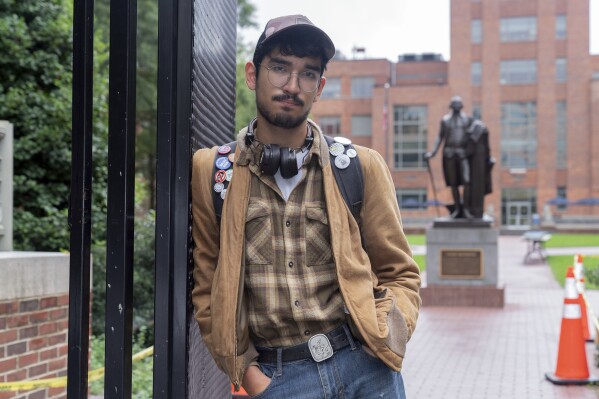Ty Lindia, a junior studying political science at George Washington University, is cautious when meeting new students due to the tense political climate on campus. With the recent Israel-Hamas war still fresh in everyone’s minds, Lindia fears saying the wrong thing and potentially damaging relationships or future job prospects. He has seen friendships end over differing views on the conflict and feels pressure to keep his stance to himself in public. This fear has only intensified since the war began on October 7th, with many students feeling the need to tiptoe around politics to avoid conflict.
The aftermath of the war has created social bubbles on college campuses, with students aligning themselves with one side or the other. This has led to a reluctance to speak out in class discussions, as students fear being ostracized by their peers or even facing disciplinary action from their university. Mikayla Kaplan, a sophomore at Indiana University, shared her experience of staying quiet in a class discussion on gender and the military, despite wanting to mention her female friends who serve in the Israeli military. She felt pressure to conform to the politically progressive views of her classmates.
At the University of Connecticut, students also feel the tension surrounding the conflict, with some expressing concern over potential employers scrutinizing their political statements made in college. Ahmad Zoghol, an engineering student, shared that there is a fear of repercussions for speaking out about the conflict.
Overall, the atmosphere on college campuses has calmed since the protests and tent encampments of last spring, but the unease and fear of speaking out still lingers. Students are cautious about what they say and who they say it to, as the Israel-Hamas war continues to divide opinions and create tension on campuses across the country.
Read More @ apnews.com













